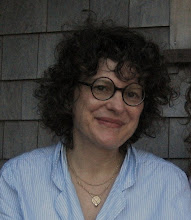Wednesday, March 28, 2012
The Giver and Hunger Games
I always used to beg my father to read books that I liked when I was a teenager...sometimes he did after I kept on bugging him. He usually enjoyed them so when Olivia commanded me to read these I did. Both were set in a dystopian world with teenagers set in perilous situations. Both writers are great storytellers and create plausible worlds and characters. The Giver ended in a very ambiguos way that Olivia and I both interpreted in different ways. The Hunger Games ends in a less satisfying way leading into the next book in the trilogy but still is quite a good ride . I will continue to accept her recommendations.
Friday, March 23, 2012
Jim Crace
Jim Crace is a truly great writer, up there with Coetzee, Marquez and Roth for me. He is always serious and only rarely does he get out of control. But after Genesis and Devil's Larder---huge stinkers---I got a little wary. I let Pesthouse pass me by. But I shouldn't have. It is quite good in a quiet almost gentle way.
Given Crace's habit of pulling no punches----remember the slow disintegration of the corpses of Being Dead, no maggot undocumented, or the breast feeding woman's mastitis in Arcadia? Ouch.I still do. Pesthouse is about a man and a woman trying to flee with the rest of the inhabitants of a dystopic America. Somehow it manages to be both horrifying and tender. He doesn't spend a lot of time explaining how America got this way---it just is, there is no set up, no explanation. But details like how a baby's dry lips are softened with the woman's ear wax are plentiful.
"A writer of hallucinatory skill" the late John Updike said. I agree, John, except for the two stinkers.
Tuesday, March 13, 2012
Life Among the Savages
The only thing I know about Shirley Jackson is the short story The Lottery but she also wrote a very wickedly funny account of her family life in rural Vermont, Life Among the Savages. It is quite funny. It was written in the days when you spent ten days in the hospital reading and smoking after having a baby, when everyone walked from room to room with their ashtray and their cigarettes, where the new baby rode in the front seat of the car. There is no sentimentality or simpering over the children----each child is treated as an equal--a wily combatant to be reckoned with. What makes this all especially poignant is that Shirley Jackson died when she was only 48 and that apparently she and her family endured a lot of anti-semitism in this little bucolic town----makes you wonder who the savages she is referring to really are.
Monday, March 12, 2012
Behind the Beautiful Forevers and Beautiful Thing
So Behind the Beautiful Forevers is about a community of garbage pickers that live in a slum just behind the airport in Mumbai. Katherine Boo is a very matter of fact storyteller and allows the characters---who are real people--not characters---to tell the story themselves, she observes and occasional draws us to the larger picture but is remarkably unobtrusive.
It reminded me of Rohinton Mistry's A Fine Balance which was a book that broke my heart. The level of corruption in India was what got to me the most here though (in A Fine Balance I thought it was fiction!)---here everyone is out to get something out of nothing. The garbage pickers sorting through the cities refuse---paying people to take their garbage, the police extorting money out of people living in squalid shacks, the schools set up for the poor so that they can send photos to the charities that are funding them before they shut them down and pocket the money. At some point Katherine Boo says that corruption is seen not as a negative but as a positive in this society since it is the only way to get ahead. It was a society I knew nothing about and I wanted to read more.
So I have plunged into Beautiful Thing about bar dancers in Mumbai, young girls who dance in clubs to Bollywood music and other unsavory activities. A step up from the garbage pickers in one sense, a step down in many others. So far---not so good. Rather than staying invisible the author has already inserted herself at various points. The language is trying very hard to be lyrical and perhaps mimic the voices of the girls but it just reads as forced. Example: "Such words, if repeated often enough, might result in the gift of a TV, perhaps even a mini fridge stocked with silver-foil mithai rich with ghee and thick with nuts, or of a new wardrobe, everything within 'matching-matching' and sequined one hundred percent, so at night in the light of the creamy street bulbs, the bar dancer walking from her flat to an auto-rickshaw would cause strolling couples and children playing cricket between cars to stare, for she would appear like she was draped in diamonds sparkling so bright they could only be living, breathing things."
Subscribe to:
Comments (Atom)





